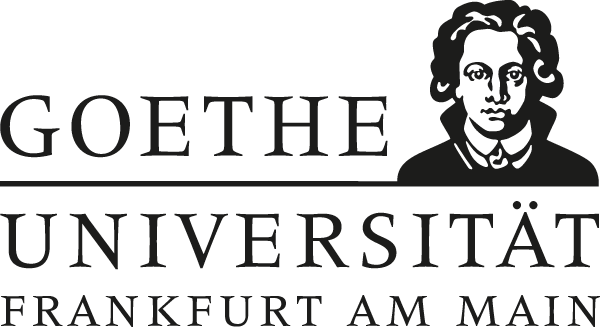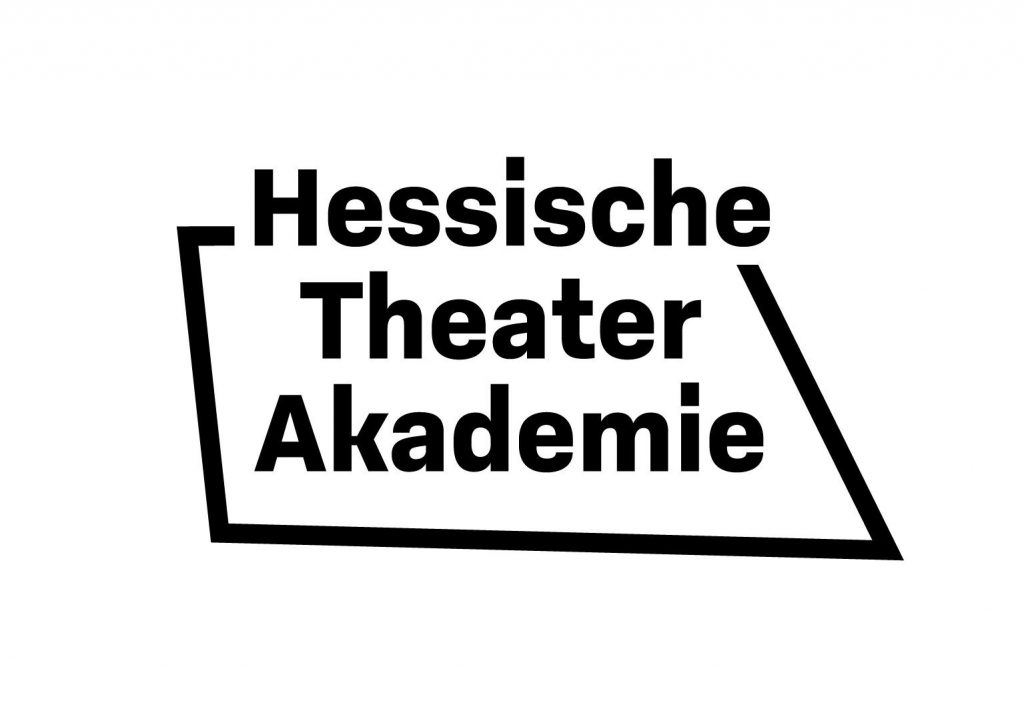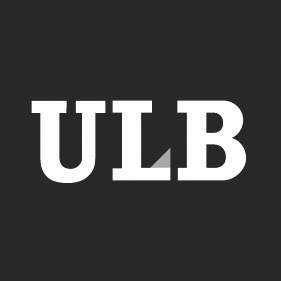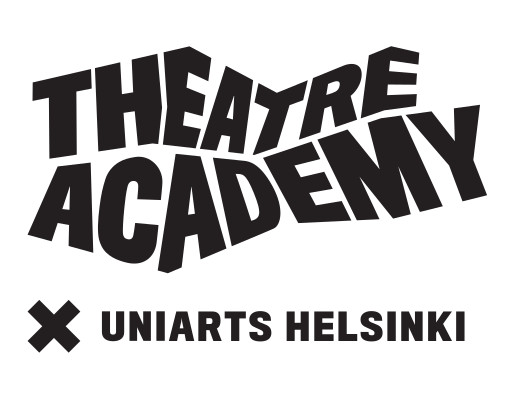 ;
; Study Programmes
The Theatre Studies department at the Institute for Theatre, Film and Media Studies at the Goethe University offers two M.A. programmes in Dramaturgy in cooperation with the Hessian Theatre Acadamy (HTA):
M.A. Dramaturgy
The M.A. Dramaturgy was founded in 2002 and offers a full university course in Frankfurt that combines theory and practice.
M.A. CDPR
The international study programme Comparative Dramaturgy and Performance Research offers studying both at Goethe University in Frankfurt and at one of currently four international higher education institutions and leads to a Double Degree.

Dramaturgy as Political Practice
We understand “Dramaturgy” as a political practice. Dramaturgy can open the creative process – the artwork in progress – where it threatens to refuse the demands of the constitutively excluded Others. Dramaturgy remembers, that conflict is key for every theatre and opposes its ‘extorted reconciliation’ (Adorno). With dramaturgy, we can negotiate the question of who is allowed to take up space and perform on stage and who isn’t again and again. The vanishing point of every political dramaturgy is that impossible theatre that negates the present as the realm of possibilities: In the interest of a different theatre or perhaps of something completely different from what we call theatre today.

Endure conflicts! – Check your privileges!
The current lecture series of the Hessian Theatre Academy (HTA) in cooperation with Goethe University starts on Thursday, 24 April 2025.
Weekly Thursdays, 6-8 pm, Goethe University, Hörsaalzentrum, HZ 10.
More details on the content can be found here:
Contributors to the lecture series will include: Rebecca Ajnwojner (Berlin/Wiesbaden), Fouad Boussouf (Le Havre), Leon Gabriel (Bochum), Eva Geulen (Berlin), Jayrome Robinet (Berlin), Erhard Schüttpelz (Siegen), Natan Sznaider (Tel Aviv), Paula Irene Villa Braslavsky (Munich) (programme see below).
Recordings of the individual sessions can be found here:
Coordination: Susanne Komfort-Hein (Goethe University), Nikolaus Müller-Schöll (Goethe University) in cooperation with the Senate Working Group Racism and Anti-Semitism Critical University (RAU) and the Hessian Theatre Academy.
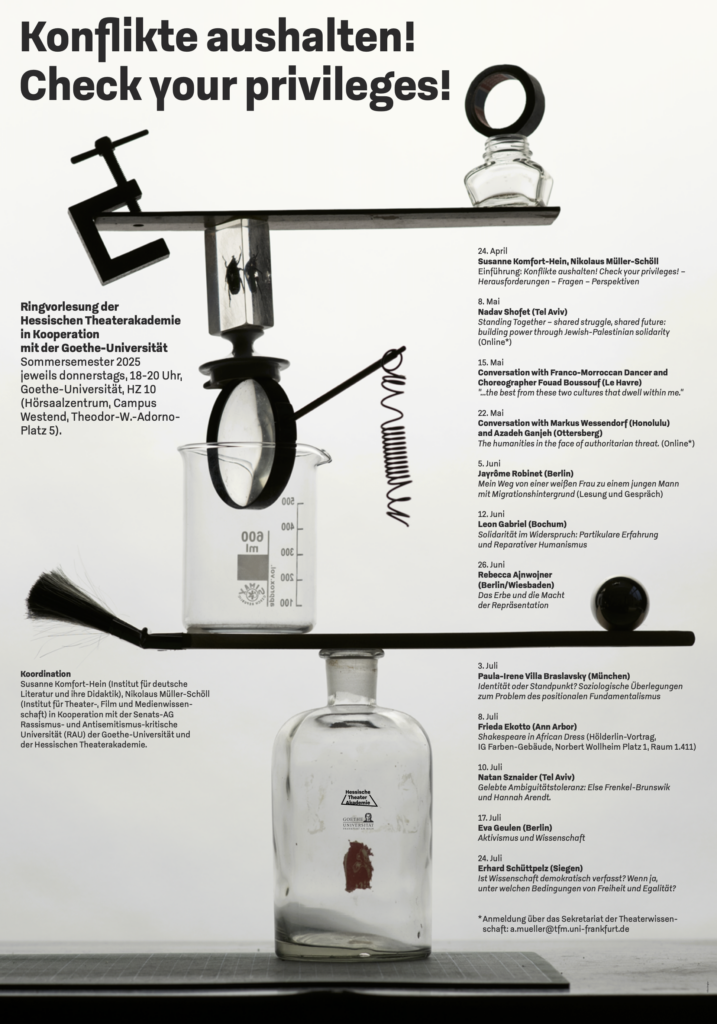
Hölderlin Lectures 2024/25
Detailed information on the Hölderlin Lectures can be found on the following website:
http://hoelderlin-gastprofessur.de/
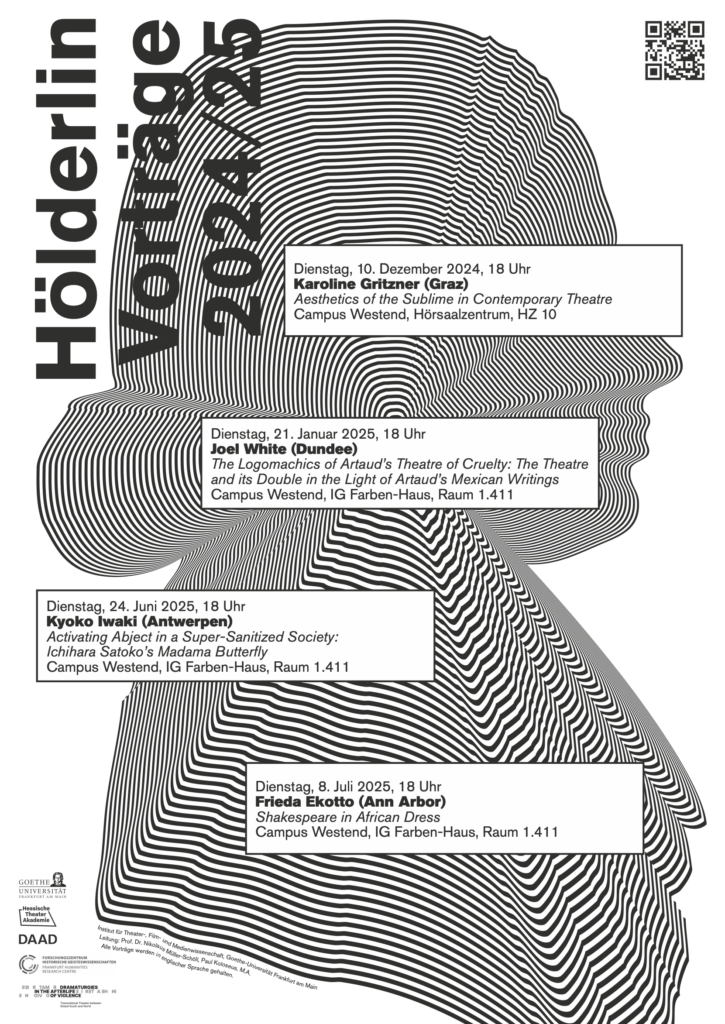
Past Events
Hölderlin Lecture on Tuesday, July 08, 2025, 18h
Frieda Ekotto (Ann Arbor): Shakespeare in African Dress
Campus Westend, IG Farben-Haus, Room 1.411
The lecture examines ways of understanding “difference” and “repetition” as a space of resistance reflecting the ambiguity of the post-colonial subject. It does so by considering repetition and difference in the rewriting/adaptation of Shakespeare‘s play “Julius Caesar” by an African. Rewriting this play is a discursive gesture through which the question of “difference” dislocates fixed definitions in such a way that opposing cultures seem to become interminably interchangeable with one another. Shakespeare in African dress may be understood as a recuperation of agency and re-presentation by the postcolonial subject through a space opened up by cultural encounters of the colonizer and the colonized. “Moi, Veuve de l‘Empire”, is the French title of this version of “Julius Caesar”, the Congolese author and playwright Sony Labou Tansi’s Shakespearean drama. Labou Tansi is the foremost Congolese writer of the 20th century – he is the author of several novels and plays, and the founder of his own theatre group called “Le Rocado Zulu Theatre de Brazzaville”.
Hölderlin Lecture on Tuesday, June 24, 2025, 18h
Kyoko Iwaki (Antwerpen): Activating Abject in a Super-Sanitized Society: Ichihara Satoko’s Madama Butterfly
Campus Westend, IG Farben-Haus, Room 1.411
After thousands of remounted performances and cascades of critiques, many preceding scholarships have demonstrated a development in understanding “Madama Butterfly” as a story epitomizing the imagined orient formulated within the framework of the so-called “Spaghetti Eastern” Italian operas. By situating the Orientalist view of “Madama Butterfly” as a historical counterpoint, I will discuss in this talk how Japanese playwright-director Ichihara Satoko challenges the political violence of Puccini’s opera through the scope of women of color dramaturgy. In doing so, I will demonstrate how, through the deliberate ‘activation of the abject’, Ichihara aims to override the automated racialized assumptions and epistemic systems that stipulate the codified repository of imaginations cast from the other and far from the real.
Jour Fixe
The Theatre Studies Department at the Institute for TFM invites you to a Jour Fixe on 14.05.2025 at 19:00 on the rehearsal stage. Guests are members of four important institutions of the independent theatre scene in Frankfurt and Hesse.
Shivā Amiri is a performer, director and diversity trainer as well as a board member of Independent Dance and Performances (ID) Frankfurt.
Kristin Gerwien is a singer, stage and costume designer and member of the artistic direction of the Theaters neben dem Turm in Marburg.
Linus König is director and artistic director of Landungsbrücken, Frankfurt.
Simon Möllendorf is co-managing director of the production house Naxos and was one of the founders of Studio Naxos.
In conversation with our guests, we want to talk about artistic work, forms of production and institutional framework conditions in the independent theatre scene in Frankfurt and Hesse and, not least, help to establish contact between the students and the venues and networks of our guests. As usual with pretzels, wine and non-alcoholic drinks.
Lecture theatre building Bockenheim, Mertonstr. 17-21, room D 108. Admission free.
Hölderlin Lecture on Tuesday, January 21, 2025, 18h
Joel White (Dundee): The Logomachics of Artaud’s Theatre of Cruelty: The Theatre and its Double in the Light of Artaud’s Mexican Writings
Campus Westend, IG Farben-Haus, Room 1.411
The question of Artaud’s politics has often been obscured by an unfair concentration on Antonin Artaud as a case study in madness. Up until recently, some of the most explicitly political and philosophical writings of the French poet were hidden in an untranslated retranscription of his book “Revolutionary Messages”, written in Mexico in 1936. Published for the first time in September 2024, it not only allows us to reassess Artaud’s theatrical works through the lens of his explicit politics and engagement with figures such as Hegel, Bergson and Marx, but also provides what could be called the material Double to the spiritual and aesthetic endeavour that was to be the Theatre of Cruelty. In my presentation, I will read “The Theatre and its Double” alongside “Revolutionary Messages” to highlight how it is now possible to connect spirit and matter, demonstrating how many of the aesthetic ideals of the Theatre of Cruelty, such as its emphasis on the notion of the void, staging, and breath, are related to a political and philosophical vision of the world in which Life reconnects with Nature.
Hölderlin Lecture on Tuesday, December 10, 2024, 18h
Karoline Gritzner (Graz): Aesthetics of the Sublime in Contemporary Theatre
Campus Westend, Hörsaalzentrum, HZ 10
When the sublime became a category of art (in post-Kantian aesthetic theories), the problem of representation came to be reassessed and the category of the beautiful expanded. Modern theories of the sublime (e.g. Adorno and Lyotard) emphasise the process of de-subjectification in aesthetic experience and criticize of the rational control of nature. In this lecture, I question to what extent contemporary theatre may enable a thinking that approaches the philosophical-aesthetic experience of the sublime – how it may question it, interrupt it and develop it further. Using examples from Romeo Castellucci’s, Howard Barker’s and Jan Fabre’s art of theatre, I consider the sublime as a limit-experience, as a feeling of sensorial and intellectual intensity, and finally as an announcement of alterity, formlessness and transcendence, which nevertheless represents an immanent confrontation with the materiality of the image, the body, and language.
Social Media
Follow us on our Instagram page and receive
exclusive insights and exciting announcements about the two
Master’s programmes in Dramaturgy and CDPR:
Jour Fixe
The Jour fixe invites students of the Hessen Theatre Academy to take part in discussions with guests from theatre and cultural policy on the rehearsal stage of the Institute for TFM in an informal context.In the past years with: Beate Heine, Amelie Deuflhard, Martine Dennewald, Marcus Droß, Tim Etchells, Sigrid Gareis, Heiner Goebbels, Kirsten Haß, Carl Hegemann, Katja Herlemann, Stefan Hilterhaus, Marta Keil, Susanne Kennedy, Burkhard Kosminski, Elisa Liepsch and Julian Warner, Matthias Lilienthal, Jan Linders, Stefanie Lorey, Florian Malzacher, Bettina Masuch, Barbara Mundel, the production office „Ehrliche Arbeit“, Milo Rau, She She Pop, Carena Schlewitt and André Schallenberg, Jan Philipp Stange, Julia Stoschek, Tom Stromberg, Hasko Weber and many more. On irregular Wednesdays at 19 o’clock (c.t.). Le Studio. Rehearsal stage of the Theatre Studies department (Probebühne der Theaterwissenschaft), Jügelhaus, building section D, room 108, 1. Floor, Campus Bockenheim.
Scenic performance projects
The Frankfurt Theatre Studies programme puts great emphasis on integrating experience with artistic practice into the programme, no matter whether students aim for a career on stage or behind the scenes later in life. Students regularly work with professional artists within the framework of scenic performance projects, theory-practice-project workshops and weekend-seminars on the rehearsal stage of the Institute. In past years with: Robin Arthur, Sebastian Blasius, Laurent Chétouane, Prof. Dr. Katrin Deufert und Thomas Plischke, Tim Etschells, Manuela Infante, Jason Jacobs, Rupert Jaud, John Jesurun, Katharina Kellermann, Chris Kondek, Prof. Stefanie Lorey, Lina Majdalanie, Uwe Mengel, Gerardo Naumann, Boris Nikitin, Prof. Mike Pearson, Katharina Pelosi, redpark, Felix Rothenhäusler, Diego Rotman, Tucké Royale, Johannes Schmit, Jan-Philipp Stange, Katharina Stephan, Tore Vagn Lid, Camila Vetters, Rosa Wernecke, Ivna Zić.
Research-Colloquium and Masterclass
The Theatre Studies Department highly values the connection of teaching and research. We are committed to teaching our research. That is why each semester, we offer a Research-Colloquium for Master-students, where we discuss current questions in research as well as the final projects of students. Furthermore, we regularly hold Master Classes. They give students the opportunity to present and discuss their own academic work within the framework of a public event with international academic and theatre practitioner guests. Past events have concerned themselves with these topics: „Critical Theatre Research“ (Winter 23/24), “[Bühnen]Besetzungen” (Winter 20/21), “Sound Knowledge: Exploring the Dramaturgies, Philosophies, and Politics of Listening” (Winter 19/20), „Implosion of the municipal theatre? History, Analysis, Perspective“ (Winter 18/19), „Theatre and Identity Politics“ (Winter 17/18), „Theatre of the A-Human“ (Winter 15/16), Kafka and Theatre“ (Winter 13/14). Presentations, contributions and results are documented here:
https://blog.studiumdigitale.uni-frankfurt.de/theater/
http://www.theater-wissenschaft.de/category/thewis/ausgabe-2017-kafka-und-theater/
Artistic-academic Symposium
‘Plus d’un théâtre”: With a recurring reference to Derrida’s notion about how we are entangled in “plus d’une langue”, the aim of the symposium in february 2025 was to discuss how theatre could be thought of: as more than the theatre of a certain form, but also as one that is actually no longer theatre and thus transcends set definitions.
We, a group of former and current doctoral students and employees in theatre studies and scenography, invited you to think about where theatre, performance and dance enable transitions into realities and at the same time reach beyond these realities. Contributions from Claudia Bosse, Martina Groß, Günther Heeg, Rembert Hüser, Judith Kasper, Liz Kohlhaas, Krassimira Kruschkova, André Schallenberg, Gerald Siegmund and a performance by Boris Nikitin thematised where and how scenic attempts, concepts and ideas negotiate the limits of representability and thus themselves move at these limits, come close to them, touch them and let them fall away again.
The symposium ‘Plus d’un théâtre – Potentialitäten eines eingreifenden Denkens’ took place on 6 and 7 February 2025 at Frankfurt LAB.
Coaching
Dramaturgy and CDPR students will be supported in their artistic projects by choaches who come from the field of dramaturgical practice. That’s why we work with practitioners from municipal and state theatres as well as from the Free Scene. In the past few semesters, students worked with: Björn Auftrag, Laurent Chétouane, Marcus Dross, Martin Hammer, Maria Magdalena Ludewig (T), Katja Leclerc, Kris Merken, Malin Nagel and Jonas Zipf.
Friedrich Hölderlin Guest Lectures in General and Comparative Theatre Studies
Within the framework of this lecture series we will situate Theatre Studies in the context of those philosophical and political questions that are always at play when thinking about theatre, but that are often obscured. Next to questions that strictly concern theatre, the talks of our guests will also deal themselves with questions on theatre theory and theory referring to theatre. These talks deal with theatre in all its four meanings, in accordance with the Leipzig discourse on theatricality: Theatre, anti-theatre, theatre in a wider sense and not-theatre. Our extended understanding of “Theatre“ is situated closely to newer findings in the field of Theatre Studies: We want to establish a notion of Theatre Studies that places it outside of the national-philological explanation of 1930s Germany as well as outside of the limitation of the staged performance, suggested by Max Hermann, the founder of Theatre Studies in the German-speaking context, at the turn of the 19th century. Theatre is more than the ephemeral product of an evening, but is also process, interaction, action and especially critical practice.
By choosing Hölderlin as the namesake for this lecture series, we seek to remember that Hölderlin, who lived in Frankfurt for some time, wasn’t just a great poet, but also a great theatre theoretician and dramaturgical thinker, who opened up the thinking of modern theatre with his Sophocles translations, fragments of writing and comments on “Ödipus” and “Antigone”. This is especially true when considering the ineluctable condition of “mediation”.
Recordings of past lectures:
https://blog.studiumdigitale.uni-frankfurt.de/theater/blog/category/hoelderlin-gastvortraege/

Digital Archive
With the project “Digital Theatre Research” the institute is pioneering in the field of digital documentation, digital mediation and experimentation with theater.
At “Digital Theatre Research” documentations of conferences, lectures, symposia and other events will be uploaded. On the “Digital Stage” you will find video experiments, tutorials and documentations of student projects. In the “Laboratory Video⇄Stage” various workshops with specialists from the interface of video and theatre took and take place.

